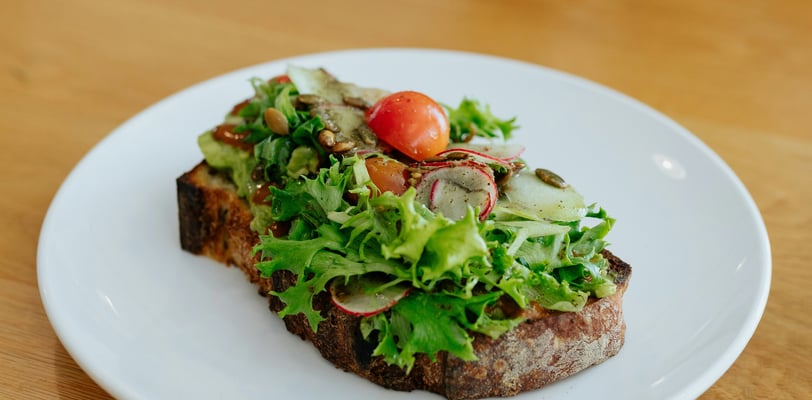Nutrition Tips For Boosting Immune System Health
Boosting your immune system through nutrition is key to overall health. This article provides tips on how to do just that. First, eat plenty of fruits and vegetables, which are packed with vitamins, minerals, and antioxidants that support immune function. Lean proteins like chicken and tofu are also essential, as they provide amino acids necessary for immune cell production. Healthy fats, such as those found in salmon and olive oil, can reduce inflammation and bolster immune response. Whole grains, probiotics, and staying hydrated all contribute to a healthy immune system. Additionally, certain herbs and spices, like garlic and turmeric, have immune-boosting properties. Finally, limiting processed foods, sugar, and alcohol can help maintain optimal immune function. Remember, while nutrition is key, a healthy lifestyle with regular exercise, sleep, and stress management is also crucial for a strong immune system.
BHAVYA BHARTIHEALTH
Bhavya Bharti
8/7/20243 min read


Nutrition Tips For Boosting Immune System Health
A well-operating immune system is paramount for sustaining overall well-being and safeguarding against diseases. While genetic and lifestyle elements play a role, nutrition serves as a pivotal determinant of immune health. The integration of specific foods and nutrients into one's diet can amplify the body's capability to resist infections and illnesses. Presented below are crucial nutritional recommendations to fortify the immune system:
1. Consume a Variety of Fruits and Vegetables:
Fruits and vegetables are abundant in vitamins, minerals, and antioxidants that are indispensable for immune function. For instance, Vitamin C, present in citrus fruits, strawberries, and bell peppers, aids in stimulating the production of white blood cells, which are essential for combatting infections. Vitamin A, found in carrots, sweet potatoes, and spinach, sustains the well-being of skin and mucous membranes, which serve as barriers to pathogens.
2. Incorporate Lean Proteins:
Proteins are the fundamental constituents of the immune system. It is imperative to include lean protein sources like chicken, turkey, tofu, and legumes in one's diet. Amino acids derived from proteins are crucial for the generation and operation of immune cells and antibodies.
3. Include Healthy Fats:
Healthy fats, particularly omega-3 fatty acids, play a substantial role in diminishing inflammation and bolstering immune response. Sources of omega-3s encompass fatty fish such as salmon, walnuts, chia seeds, and flaxseeds. Additionally, olive oil is a commendable option for its anti-inflammatory attributes.
4. Opt for Whole Grains:
Whole grains like brown rice, quinoa, and oats are rich in vitamins and minerals, including zinc and selenium, which are imperative for immune function. These nutrients aid in upholding the well-being of immune cells and amplifying their capacity to combat pathogens.
5. Maintain Hydration:
Proper hydration is crucial for sustaining the operation of every cell in the body, including those implicated in the immune response. Sufficient water intake supports the production of lymph, which facilitates the circulation of immune cells and elimination of toxins from the body.
6. Incorporate Probiotics:
Probiotics, present in yogurt, kefir, and fermented foods like sauerkraut and kimchi, foster a healthy gut microbiome. A balanced gut microbiome is critical for optimal immune function, given that a significant portion of the immune system resides in the gut.
7. Include Herbs and Spices:
Certain herbs and spices, such as garlic, ginger, turmeric, and echinacea, have demonstrated immune-boosting properties. Garlic exhibits antimicrobial and anti-inflammatory effects, while turmeric contains curcumin, which can regulate the immune response.
8. Restrict Processed Foods and Sugar:
Excessive sugar consumption and processed foods can detrimentally affect immune function by inciting inflammation and disturbing gut health. It is advisable to opt for whole, unprocessed foods whenever feasible and restrict the intake of sugary snacks and beverages.
9. Ensure Adequate Vitamin D Intake:
Vitamin D is indispensable for immune health. While sunlight serves as a natural source of vitamin D, fortified foods and supplements are alternative sources. Vitamin D aids in regulating the immune system and heightening the pathogen-fighting capabilities of monocytes and macrophages.
10. Moderate Alcohol Consumption:
Moderate alcohol consumption may have a significant impact on immune function. It is advisable to either limit alcohol intake to a moderate level or abstain completely in order to preserve optimal immune system functioning.
Conclusion:
Enhancing immune system efficacy through dietary means requires a well-rounded approach that includes consuming a diverse range of nutrient-dense foods while avoiding overindulgence. By incorporating these suggestions into your dietary habits, you can bolster your body's innate defense mechanisms and enhance overall well-being. It is important to note that although nutrition is pivotal, maintaining a healthy lifestyle encompassing regular physical activity, sufficient sleep, and effective stress management is also essential for immune system maintenance.
Links
GurM Business Pvt. Ltd. empowers entrepreneurs, professionals, and businesses with comprehensive sustainable growth and innovation solutions. Through our platform, InvestBegin.com, we offer strategic business insights, operational support, market research, data analytics, and professional networking opportunities. Our mission is to provide the tools and knowledge needed for success. Join us to access unparalleled resources and drive your business forward.
© 2024. GurM Business Pvt. Ltd. All rights reserved.
GSTIN: 01AALCG3285D2ZV

